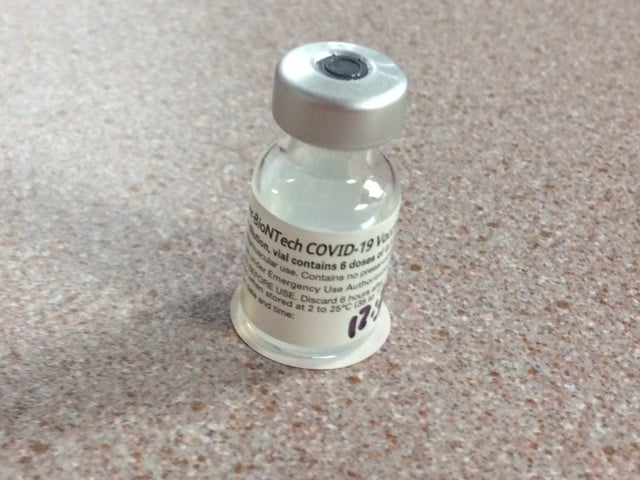White House Aims to Have 70% of Americans Vaccinated by July 4

WASHINGTON – The Biden administration wants COVID-19 shots to go where the demand is, and will begin moving doses from states with lower demand to those where the interest in getting the vaccines is stronger — all with an eye toward having 70% of Americans receiving at least one shot by July 4.
In addition, President Biden said Tuesday afternoon, he hopes other changes to the vaccination program will result in 160 million American adults being fully vaccinated by Independence Day.
To redirect the flow of vaccines to communities where the demand is highest, the president announced he is:
- Directing tens of thousands of pharmacies in the federal pharmacy program to offer walk-in appointments;
- Redirecting Federal Emergency Management Agency resources to support more pop-up clinics, smaller community vaccination sites, and more mobile clinics;
- Shipping new allocations of the vaccine to rural health clinics across the country; and
- Providing additional funding to help communities do outreach and engagement to help get people vaccinated.
The moves come as demand for the coronavirus vaccines has dropped nationwide. Some states have even begun turning down all or part of their weekly dose allotments.
Already more than 56% of adult Americans have received at least one dose of a COVID-19 vaccine and nearly 105 million are fully vaccinated. The U.S. is currently administering first doses at a rate of about 965,000 per day — half the rate of three weeks ago, but almost twice as fast as needed to meet Biden’s target.
The changes in strategy are intended to ramp up vaccinations by focusing on the hardest-hit and highest-risk communities.
For instance, Biden also announced nearly $250 million in two funding opportunities for community-based organizations to hire and mobilize community outreach workers, community health workers, social support specialists, and others to increase vaccine access for members of these communities.
The White House hopes that through on-the-ground, community-based outreached, these workers will build confidence by answering individual questions about vaccination, help make vaccine appointments, and assist with transportation, child care arrangements, or other needs to get to individuals to their vaccination appointments.
The first of two funding opportunities will be released today and will leverage organizations with broad geographical reach to support vulnerable and medically underserved individuals. The second funding opportunity will be released in mid-May and will focus on smaller community-based organizations.
In addition, the White House is dedicating more than $130 million to improve vaccine education and information, and reduce health disparities in underserved communities.
The funding will support organizations with deep relationships and a long track record of commitment to support racial and ethnic minorities, rural populations, and people with disabilities, including national organizations as well as community-level organizations.
Activities will include developing and disseminating accessible educational materials and toolkits; identifying barriers to vaccine uptake and opportunities for improving vaccination availability, accessibility, and acceptability; identifying and equipping trusted influential messengers through efforts like the COVID-19 Community Corps; and building partnerships between vaccination providers and the community to increase opportunities for vaccination.
Along with these investments, another $250 million will immediately be allocated to state, territorial, and select large city governments to power their next phase of outreach efforts.
The president said his administration will deploy a number of tools and resources with these funds including: a rapid Community Assessment Guide to identify and respond to vaccine education needs and develop targeted strategies for uptake in specific communities; vaccine messages and toolkits to support vaccine education and outreach; research on subpopulations; visuals for TV, print, digital advertisements; and survey data.
The president also announced over $100 million in American Rescue Plan funding will go to nearly 4,600 rural health clinics across the country to support vaccine outreach in rural communities. This funding will be used to assist rural residents in accessing vaccinations as well as education and outreach efforts around the benefits of vaccination.
At the same time, the Health Resources and Services Administration is providing nearly $860 million in ARP funding to help rural health clinics and rural hospitals broaden their COVID-19 testing and mitigation to slow the spread of the virus in their communities.
HRSA will provide up to $100,000 per clinic to each of the 4,600 federally designated rural health clinics and up to $230,000 per hospital to 1,730 small rural hospitals to increase COVID-19 testing, expand access to testing in rural communities, and broaden efforts to respond to and mitigate the spread of the virus in ways tailored to community needs.
Ahead of the Food and Drug Administration’s expected authorization of the Pfizer vaccine for adolescents aged 12-15 by early next week, the White House is also developing plans to speed vaccinations to that age group.
Biden intends to challenge states to administer at least one dose to that age group by July Fourth and work to deliver doses to pediatricians’ offices and other trusted locations, with the aim of getting as many of them fully vaccinated by the start of the next school year.
While younger people are at dramatically lower risk of serious complications from COVID-19, they have made up a larger share of new virus cases as a majority of U.S. adults have been at least partially vaccinated and as higher-risk activities like indoor dining and contact sports have resumed in most of the country.
Officials hope that extending vaccinations to teens will further accelerate the nation’s reduced virus caseload and allow schools to reopen with minimal disruptions this fall.























